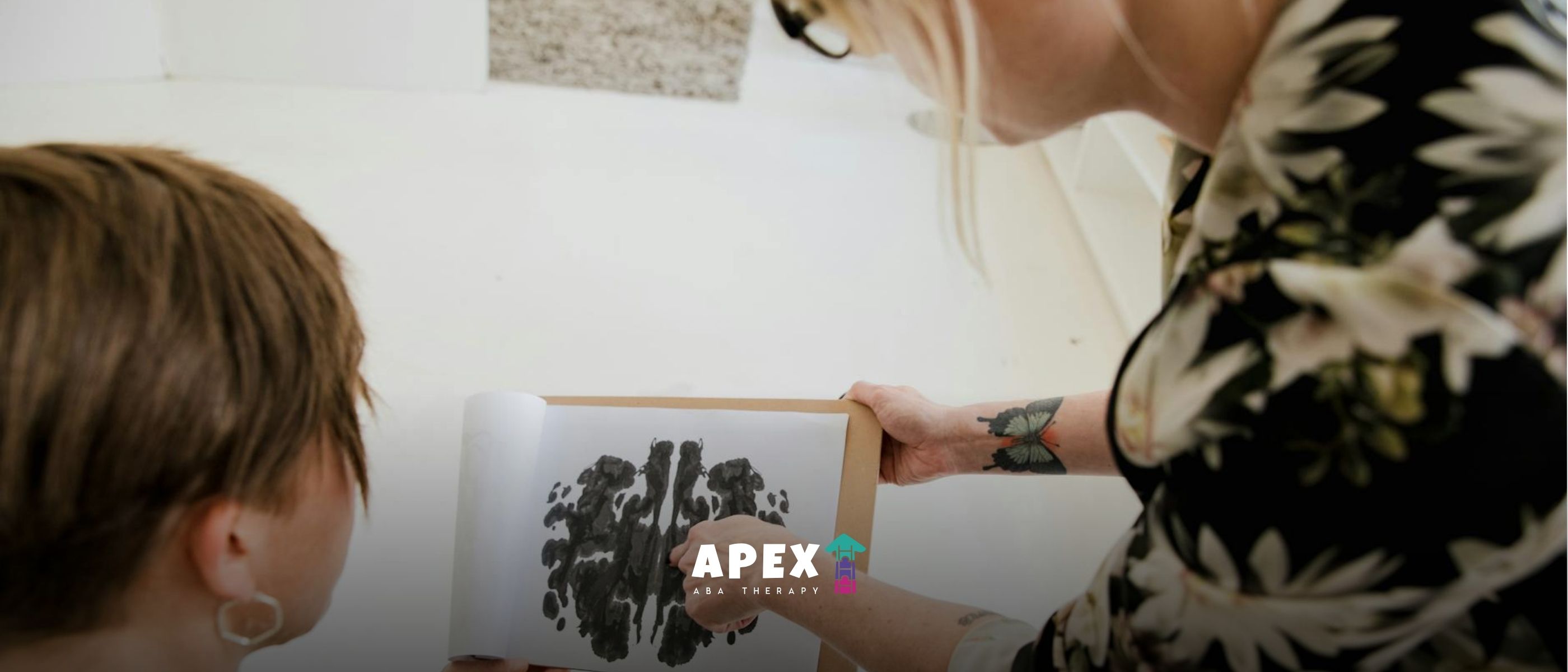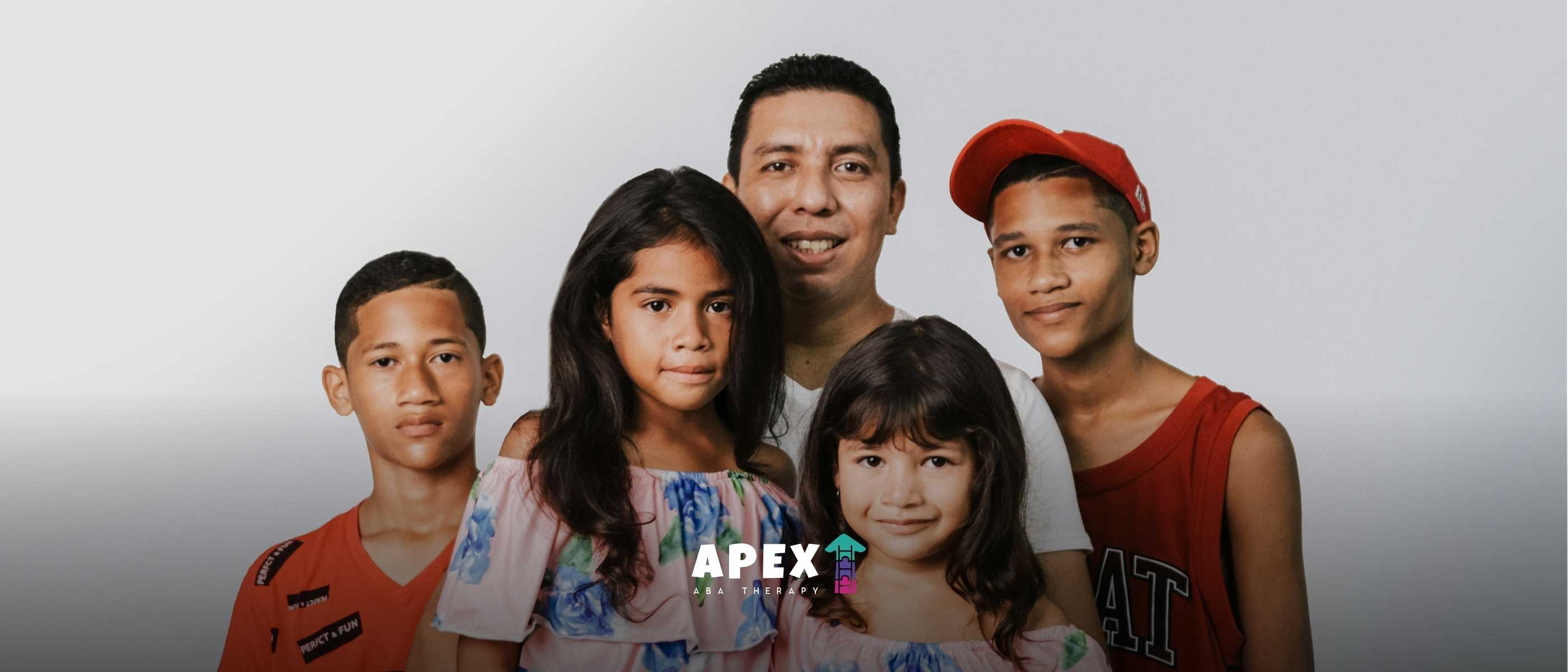Dating Someone with Autism: Building a Strong Relationship
Autism is a developmental disorder that affects communication, social interaction, and behavior. If you're in a relationship with someone on the autism spectrum, it's important to understand their needs and challenges to build a strong, healthy relationship.
.jpg)
Dating Someone with Autism: Building a Strong Relationship
Understanding Autism Spectrum Disorder (ASD)
To navigate a relationship with someone who has Autism Spectrum Disorder (ASD), it is important to have a clear understanding of this neurodevelopmental disorder and its characteristics. This section will provide an overview of what Autism Spectrum Disorder is and explore some common traits and characteristics associated with ASD.

What is Autism Spectrum Disorder?
Autism Spectrum Disorder (ASD) is a complex neurodevelopmental condition that affects social interaction, communication, and behavior. It is characterized by a wide range of symptoms and challenges that can vary from person to person. Individuals with ASD may experience difficulties in social interaction, communication, and may exhibit repetitive behaviors or restricted interests.
ASD is a spectrum disorder, which means that it encompasses a broad range of abilities and levels of support needed. Some individuals with ASD may have exceptional skills in specific areas, while others may require more assistance with daily tasks and communication.
Common Traits and Characteristics of ASD
While the symptoms and severity of ASD can vary widely, there are some common traits and characteristics that are often associated with the disorder. These may include:
- Social Communication Challenges: People with ASD may find it challenging to initiate or maintain social interactions. They may have difficulty understanding non-verbal cues, such as facial expressions or body language, and may struggle with understanding and expressing emotions.
- Repetitive Behaviors and Interests: Many individuals with ASD engage in repetitive behaviors, such as hand flapping or rocking, and may have intense and focused interests in specific topics. These repetitive behaviors and interests can provide comfort and help them regulate their sensory experiences.
- Sensory Sensitivities: People with ASD may have heightened sensitivity or hypo-sensitivity to sensory stimuli, such as noise, light, touch, or smells. This sensitivity can impact their daily lives and may require adjustments or accommodations to create a more supportive environment.
It's important to note that individuals with ASD are unique, and their experiences and challenges may differ. Understanding and respecting their individuality is key to building a strong and supportive relationship.
Dating and Autism Spectrum Disorder
When dating someone with Autism Spectrum Disorder (ASD), it's important to be aware of the unique challenges and misconceptions that can arise. Understanding these factors and nurturing healthy relationships can contribute to a positive and fulfilling dating experience for both individuals involved.
Challenges and Misconceptions
Dating someone with ASD may present certain challenges that differ from neurotypical relationships. It's important to recognize and address these challenges to foster understanding and build a strong foundation for the relationship.
One common misconception is that individuals with ASD lack interest in romantic relationships. However, this is not true. People on the autism spectrum often desire companionship and intimate connections, but they may face difficulties in understanding and expressing their emotions. It's essential to approach the relationship with patience, empathy, and open communication.
Another challenge is the potential for difficulties in social interaction. Individuals with ASD may struggle with social cues, nonverbal communication, and understanding the perspectives of others. This can sometimes lead to misunderstandings or misinterpretations. By actively working on communication strategies and practicing effective listening skills, both partners can enhance their ability to connect and understand each other.
Nurturing Healthy Relationships
Building a healthy relationship with someone on the autism spectrum requires understanding, respect, and support. Here are some essential aspects to consider:
- Education and Awareness: Educate yourself about autism and its impact on relationships. Familiarize yourself with the challenges and strengths associated with ASD. This knowledge will help you approach the relationship with empathy and understanding.
- Open and Honest Communication: Communication is the cornerstone of any successful relationship. Be open and honest about your needs, expectations, and boundaries. Encourage your partner to express their thoughts and feelings, creating a safe space for open dialogue.
- Flexibility and Patience: Flexibility is crucial when dating someone with ASD. Recognize that your partner may have unique sensory sensitivities, routines, or preferences. Show patience and understanding as you both navigate these differences.
- Respecting Autonomy: Respect your partner's autonomy and give them the space they need. Some individuals with ASD may require time alone to recharge or engage in special interests. Encourage their independence and support their personal growth.
- Seeking Support: Seek professional guidance and support when needed. Therapists or counselors who specialize in working with individuals with ASD can provide valuable insights and strategies to enhance your relationship. Don't hesitate to reach out for assistance when necessary.
Dating someone with ASD can be a rewarding and fulfilling experience. By understanding the challenges and misconceptions surrounding autism and fostering a nurturing relationship, you can cultivate a connection that is built on patience, empathy, and mutual respect. Remember, every relationship is unique, and the key to success lies in embracing these differences and celebrating the love that exists between both partners.

Communication and Social Interaction
When dating someone with Autism Spectrum Disorder (ASD), understanding and adapting to their unique communication styles is essential for building a strong and meaningful connection. In this section, we will explore the unique communication styles of individuals with ASD and provide strategies for building effective communication in relationships.
Unique Communication Styles
Individuals with ASD may have distinct communication styles that differ from neurotypical individuals. They may struggle with nonverbal cues, such as body language and facial expressions, and may have difficulty understanding sarcasm, irony, or abstract language. However, it's important to remember that communication styles can vary greatly among individuals with ASD, as ASD is a spectrum disorder.
To effectively communicate with your partner, it's crucial to be patient, understanding, and open-minded. Here are some tips to help navigate communication challenges:
- Clear and Direct Communication: Be clear and direct in your communication, using straightforward language. Avoid figurative language and be explicit in expressing your thoughts and feelings.
- Visual Supports: Visual supports, such as written instructions, schedules, or visual aids, can help individuals with ASD better understand and process information. Consider incorporating visual supports into your communication when necessary.
- Active Listening: Practice active listening by giving your partner your full attention and showing genuine interest in what they have to say. Provide feedback and ask clarifying questions to ensure mutual understanding.
- Social Stories: Social stories are short, personalized narratives that describe specific social situations or expectations. Using social stories can help individuals with ASD understand and navigate social interactions more effectively.
Building Effective Communication Strategies
Building effective communication strategies can contribute to a successful and fulfilling relationship with someone on the autism spectrum. Here are some strategies to enhance communication:
- Open and Honest Communication: Foster an environment of open and honest communication, where both partners feel comfortable expressing their thoughts, feelings, and concerns. Encourage your partner to communicate their needs and preferences, and be willing to do the same.
- Developing Routines: Establishing predictable routines and structures can help individuals with ASD feel more comfortable and reduce anxiety. Consistency in communication patterns and schedules can provide a sense of security and stability.
- Using Concrete Language: Utilize concrete and specific language to ensure clarity in your communication. Avoid using abstract concepts or idiomatic expressions that may be confusing for individuals with ASD.
- Patience and Understanding: Patience is key when communicating with someone with ASD. Give your partner ample time to process information and respond. Be understanding of their unique challenges and provide support when needed.
Remember, effective communication is a two-way street. It's important to actively listen, be sensitive to your partner's communication preferences, and adapt your own communication style to meet their needs. By fostering understanding and embracing differences in communication, you can strengthen your connection and build a successful relationship with someone with ASD.
Sensory Sensitivity and Stimuli
Dating someone with Autism Spectrum Disorder (ASD) requires an understanding of the unique sensory experiences that individuals on the spectrum may have. Sensory sensitivity and stimuli play a significant role in their daily lives and can greatly impact their well-being and comfort in a relationship.
Sensory Overload and Sensitivity
Many individuals with ASD experience sensory sensitivity, meaning they may have heightened responses to certain sensory stimuli. This can include sensitivity to sounds, lights, textures, tastes, and smells. Everyday experiences that may seem ordinary to others can become overwhelming for someone with ASD, leading to sensory overload.
To support your partner with sensory sensitivity, it's crucial to be aware of their individual triggers and take steps to minimize their exposure to overwhelming stimuli. Open communication is key in understanding their specific sensitivities and working together to create a supportive environment. By showing empathy and respect for their sensory needs, you can foster a more comfortable and enjoyable dating experience.
Creating a Supportive Environment
Creating a supportive environment involves making adjustments to accommodate your partner's sensory needs. Here are some strategies to consider:
- Noise control: Minimize loud or sudden noises that may cause distress. Use soft background music or white noise machines to create a calming atmosphere.
- Lighting: Be mindful of bright or fluorescent lighting that may be bothersome. Use dimmer lights or natural lighting whenever possible to create a more soothing environment.
- Textures and fabrics: Understand your partner's preferences when it comes to clothing fabrics, bedding, and household items. Some individuals may find certain textures uncomfortable or irritating.
- Food choices: Respect your partner's dietary preferences or aversions due to sensory factors. Certain textures or tastes may be challenging for them, so it's important to be understanding and accommodating.
- Personal space: Recognize that individuals with ASD may have different personal space boundaries. Respect their need for personal space and communicate openly about physical contact and boundaries.
By being attentive to your partner's sensory needs and creating an environment that supports their comfort, you can help them feel more at ease and enhance the overall quality of your relationship.
Understanding and accommodating sensory sensitivities is just one aspect of nurturing a healthy and fulfilling relationship with someone on the autism spectrum. In the next section, we will explore the importance of emotional regulation and empathy in building strong connections with individuals with ASD.
Emotional Regulation and Empathy
When dating someone with Autism Spectrum Disorder (ASD), it's important to understand and support their emotional regulation and empathy. Individuals with ASD may experience challenges in expressing and regulating their emotions, as well as understanding and empathizing with the emotions of others. In this section, we will explore these aspects in more detail.
Emotional Expression and Regulation
Emotional expression and regulation can be different for individuals with ASD. They may have difficulty recognizing and labeling their own emotions, as well as expressing them in a typical manner. It's crucial to be patient and understanding, creating a safe and non-judgmental space where they feel comfortable expressing their feelings.
One helpful strategy is to encourage the use of visual aids or social stories that help individuals with ASD identify and communicate their emotions. These tools can provide a structured and visual framework to express and regulate emotions effectively. Additionally, establishing a routine and predictable environment can contribute to emotional stability and regulation.
Cultivating Empathy and Understanding
Empathy is an essential aspect of any relationship, and nurturing empathy in a relationship with someone on the autism spectrum requires open communication and understanding. It's important to recognize that individuals with ASD may have difficulty interpreting and responding to the emotions of others.
To cultivate empathy and understanding, communication strategies such as clear and direct language can be beneficial. Using concrete examples and visual cues can help individuals with ASD comprehend and connect with the emotions of their partner. Patience, active listening, and validating their experiences can foster a sense of empathy and strengthen the bond between both partners.
Seeking professional guidance and support from therapists specializing in relationships and ASD can provide valuable insights and strategies for fostering emotional regulation and empathy. They can offer guidance tailored to the specific needs and challenges of the couple, helping them navigate the complexities of emotions in their relationship.
Understanding and supporting emotional regulation and empathy are crucial when dating someone with ASD. By creating a compassionate and supportive environment and utilizing effective communication strategies, couples can strengthen their emotional connection and build a nurturing relationship.
Supporting Your Loved One with ASD
When dating someone with Autism Spectrum Disorder (ASD), it is essential to provide the necessary support to help foster a healthy and fulfilling relationship. Supporting your loved one with ASD involves educating yourself and others about autism, as well as seeking professional guidance and support when needed.
Educating Yourself and Others
One of the most important steps in supporting your loved one with ASD is to educate yourself about autism. Take the time to learn about the unique traits, characteristics, and challenges associated with ASD. This knowledge can help you gain a better understanding of their experiences and provide you with insights into their perspective. By educating yourself, you can develop more empathy and patience, which are crucial for nurturing a strong bond.
It is also important to educate others who may be involved in your loved one's life, such as family members, friends, and other potential partners. By raising awareness and providing information about autism, you can help create a supportive and inclusive environment for your loved one. Encourage open conversations and dispel any misconceptions or stereotypes that may exist.
Seeking Professional Guidance and Support
In addition to personal education, seeking professional guidance and support can be immensely beneficial. Autism professionals, such as therapists, counselors, or behavioral specialists, can provide valuable insights and strategies for navigating the unique challenges that may arise in a relationship involving someone with ASD. These professionals can help you and your loved one develop effective communication techniques, address sensory sensitivities, and navigate emotional regulation.
Furthermore, support groups and online communities specifically tailored for individuals and families affected by autism can offer a sense of belonging and understanding. Connecting with others who have similar experiences can provide a safe space to share concerns, seek advice, and gain valuable support from individuals who truly understand the intricacies of dating someone with ASD.
Remember, supporting your loved one with ASD is an ongoing process that requires patience, understanding, and continuous learning. By educating yourself and others about autism and seeking professional guidance and support, you can create a nurturing environment that fosters a strong and loving relationship with your partner.
FAQs
Is it okay to ask my partner questions about their autism?
Yes, it's important to have open and honest communication in any relationship. Asking your partner questions can help you better understand their needs and challenges.
Should I change my behavior around my partner with autism?
It's important to be respectful and understanding of your partner's needs, but you don't need to drastically change who you are. Simply being aware of their unique challenges can help you build a stronger relationship.
How can I support my partner with sensory sensitivities?
Sensory sensitivities can be overwhelming for people with autism. You can support your partner by creating a calm, quiet environment when they need it, avoiding strong smells or bright lights, and respecting their boundaries.
What if I don't understand something my partner is trying to communicate?
If you're having trouble understanding something your partner is trying to communicate, don't be afraid to ask for clarification. It's okay to admit that you don't understand something and ask for more information.
Is it common for people with autism to struggle with physical touch or affection?
Yes, many people with autism may struggle with physical touch or affection due to sensory sensitivities or difficulty interpreting social cues. It's important to respect your partner's boundaries and communicate openly about what feels comfortable for them.
Conclusion
Dating someone with autism can be a rewarding and fulfilling experience. By understanding their needs and challenges, you can build a strong, healthy relationship. Remember to communicate clearly, be patient and understanding, and focus on their strengths. With the right support, you can build a relationship that lasts a lifetime.
Sources
- https://adultautismcenter.org/blog/how-to-date-someone-on-the-spectrum/
- https://iidc.indiana.edu/irca/articles/tips-for-women-in-relationships.html
- https://www.autismspeaks.org/things-know-about-dating-someone-autism
- https://opendoorstherapy.com/dating-on-the-autism-spectrum
- https://psychcentral.com/autism/autism-and-relationships
Frequently Asked Questions
.jpg)
Autism And Bed Wetting: Unlocking Solutions
Explore the connection between autism and bedwetting and find practical insights and solutions for parents and caregivers. Discover how understanding and support can make a difference in managing this common challenge for children and individuals on the autism spectrum.

Proven Examples of Smart Goals for Students with Autism
Unlock the potential of students with autism through proven examples of SMART goals. Set them up for success!
.jpg)
What is the Sensory Processing Disorder ICD-10 Code?
If you or someone you know has been diagnosed with Sensory Processing Disorder (SPD), you may have heard of the ICD-10 code. In this article, we'll explain what the SPD ICD-10 code is, what it means, and why it's important.

Understanding Vestibular Stimming in Autism
Demystifying vestibular stimming in autism: Understand the impact, strategies, and support for individuals. Uncover the power of self-regulation through stimming.

Do Amish Kids Get Autism?
Explore the prevalence of autism in Amish children and uncover the factors that may contribute to this phenomenon. Delve into the unique characteristics of Amish communities and their impact on autism rates.

Breaking Barriers: Free Sensory Toys for Autism That Make a Difference
Discover life-changing free sensory toys for autism! Unlock the power of sensory play for children with autism.

Famous People Thriving with Autism or Aspergers Syndrome
Discover the extraordinary journeys of famous people thriving with autism and Asperger's syndrome. Unveil the inspiring stories of icons who break stereotypes.

IEP Goals for Autism: Ultimate Guide
Unlock the potential: Constructing meaningful IEP goals for autism to support your child's growth and development. Discover strategies and examples!

Young Celebrities with Autism
Discover inspiring young celebrities with autism and their journeys in entertainment and advocacy.
.jpg)
Autism Hand Posturing: Causes, Types, and Management
Autism hand posturing refers to repetitive and often purposeless movements or postures of the hands and fingers seen in individuals with autism. These movements range from simple hand flapping to more complex finger twisting and tapping.

Distinguishing ADHD vs Autism Stimming
ADHD stimming vs autism stimming: Discover the motivations and characteristics behind these behaviors in individuals.

Addressing Rigid Thinking in Autism
Unlocking flexibility in autism! Discover strategies, therapy, and tools to address rigid thinking for a brighter future.

DSM 6 Release Date Revealed
Unlock the future with DSM-6! Discover the release date and anticipated changes in the mental health landscape.

Why Do Autistic People Rock?
Uncover insights with empathy, exploring the diverse ways rocking serves as a coping mechanism and sensory regulation for individuals on the autism spectrum. Join us in celebrating the beauty of neurodiversity, fostering understanding and appreciation for this distinctive aspect of autistic experience.

Signs Your Toddler Is Not Autistic
Discover reassuring signs that your toddler may not be autistic in this human-centered guide. Explore the joy of your child's unique developmental journey, celebrating their social engagement and communication skills.
.jpg)
Facial Features & Physical Characteristics Of Autism
Some researchers believe that these physical characteristics are related to the underlying neurological differences in individuals with autism.

The Three Main Causes of Autism: Exploring Genetics, Environment, and Brain Differences
Autism is influenced by genetics, environmental factors, and brain differences. Learn how these three causes contribute to the development of the condition.

What are the Common Behaviors of Autism?
Autism behaviors can vary widely. Learn about the most common traits, from social difficulties to sensory sensitivities, and how ABA therapy can support progress.

What Age is Too Late for ABA Therapy?
It’s never too late to start ABA therapy. Discover how children, teens, and adults can still make meaningful progress with personalized ABA support.

Is In-Home ABA the Right Fit for Your Child? Here’s What You Need to Know
In-home ABA therapy offers a tailored approach to support your child’s development. Learn how it can improve key skills like communication, social interaction, and more.

How Families Can Make ABA Therapy a Positive and Successful Experience
Learn how families can ensure ABA therapy is a positive, successful experience. Discover tips for involvement, consistency, and support to make ABA effective.

Can a Child Have Autism and Still Talk Normally?
Can a Child Have Autism and Still Talk Normally?

What Are the Red Flags for Autism in a 2-Year-Old?
Autism Red Flags in 2-Year-Old Children | Apex ABA

Is Autism a Lifelong Condition?
Is Autism a Lifelong Condition? Understanding The Journey

Best Age to Start ABA Therapy & What Parents Should Know
Best Age to Begin ABA Therapy for Children | Apex ABA

What’s the Difference Between High-Functioning Autism and Asperger’s?
Difference Between High-Functioning Autism and Asperger’s

ABA Therapy Enhancing Social Skills: A Key to Improved Communication and Interaction for Children with Autism
How ABA Therapy Helps Children Build Social Skills

Misconceptions About ABA Therapy: Clearing Up the Myths
Common Misconceptions About ABA Therapy | Apex ABA

What Does It Mean to Be “On the Spectrum”?
What Does It Mean to Be on the Autism Spectrum? | Apex ABA

Understanding the Power of Functional Behavior Assessment ABA
Effective ABA Techniques for Behavioral Intervention

Discover How ABA Helps ADHD in Your Child’s Life
How ABA Therapy Helps Children with ADHD | Apex ABA

Life-Changing ABA Therapy Case Studies You Need to Know
Real Success Stories from ABA Therapy Journeys | Apex ABA

Can Children “Outgrow” Autism?
Can Children Outgrow Autism? Understanding the Facts

Is Autism a Mental Illness or a Developmental Disorder?
Mental Illness or Developmental Disorder Explained

Is Autism More Common in Boys Than Girls?
Autism in Boys vs Girls: What the Research Reveals

What is the Difference Between Autism and Sensory Processing Disorder?
Autism vs Sensory Processing Disorder Differences | Apex ABA

What's the Difference Between Autism and Speech Delay?
Autism vs Speech Delay & Key Differences Explained | Apex

ABA Therapy in North Carolina: A Complete Guide for Families
Learn everything about ABA therapy in North Carolina, including services, costs, insurance coverage, and how to choose the best ABA provider in North Carolina.

ABA Therapy vs Preschool: Making the Right Choice Explained
Learn the key differences between ABA therapy and preschool to help you choose the best option for supporting your child’s early learning and development.

Which Personality Type Is Most Likely to Be Autistic?
Which Personality Type Is Most Likely to Be Autistic? | Apex ABA

Why Consistency Matters: What Happens If ABA Therapy Ends Prematurely
What Happens If ABA Therapy Is Stopped Too Early? | Apex ABA

How Can You Gain an Autistic Person’s Attention? Tips for Meaningful Connection
How Can You Gain an Autistic Person’s Attention?

Sensory Sensitivity and Sixth Sense: What Autism Research Shows
Do Autistic People Have Sixth Sense? | Apex ABA

What Happens If Autism Is Left Untreated?
Can Autism Get Worse If Untreated? | Apex ABA

What Not To Do With An Autistic Child: Avoid These 10 Mistakes
What Not To Do With An Autistic Child? | Apex ABA

Coping with Regressive Autism: Tips for Parents
What is Regressive Autism? | Apex ABA

Do Autistic Kids Live with Parents Forever? Here’s the Reality
Do autistic kids live with parents forever? Discover the facts about independence and living arrangements in autism with expert-backed insights.

Red Flags in ABA Therapy: What Parents Must Watch For
What are the red flags in ABA therapy? Learn to identify warning signs for safe, effective autism treatment in this blog.

Can You Go from Level 3 Autism to Level 1? Is It Possible?
Can you go from level 3 autism to level 1? Learn about progress, therapy, and support options with expert help from Apex ABA.

Autism vs Introversion: How to Tell the Difference
Is it autism or just introversion? Learn the key differences and signs with expert insights from Apex ABA.

ABA for Managing Transitions: Tips to Ease Change for Kids
Learn how ABA for managing transitions helps children with autism handle change smoothly.

Understanding the 7 Dimensions of ABA for Better Outcomes
Discover the 7 Dimensions of ABA and how they can lead to better outcomes.

5 Unique Autistic Love Languages You Should Know About
Discover the 5 unique autistic love languages that can enhance your relationships.

Transforming Futures: Improving Lives of Kids with Autism
Discover how innovative strategies are focused on improving lives of kids with autism.

ABA Therapy Techniques for Addressing Repetitive Behaviors in Autism
Harnessing ABA Strategies to Tackle Repetitive Behaviors in Autism

The Role of ABA Therapy in Enhancing Communication Skills
Transforming Communication for Children with Autism Through ABA Therapy

How ABA Therapy Supports Effective Communication in Nonverbal Children
Unlocking Speech Through ABA: Transformative Paths for Nonverbal Children

How to Help Your Child Transfer Skills Learned in ABA Therapy to Real Life
Unlocking Real-World Success for Children in ABA Therapy

How ABA Therapy Helps Children Develop Better Organizational Skills
Empowering Children with ABA Therapy for Enhanced Organizational Skills

The Importance of Creating a Structured Routine in ABA Therapy
How Structured Routines Transform ABA Therapy for Autism

The Role of ABA Therapy in Developing Conflict Resolution Skills
How ABA Therapy Transforms Conflict Resolution Competence

The Importance of Generalization in ABA Therapy for Autism
Unraveling the Role of Generalization in Enhancing ABA Therapy Outcomes

Why ABA Therapy is Crucial for Parents of Children with Autism
The Transformative Impact of ABA Therapy on Families with Autistic Children

How to Involve Parents in the ABA Therapy Process
Maximize Parent Engagement in ABA Therapy for Better Outcomes

What are the Core Principles of ABA Therapy?
Exploring the Cornerstones of Applied Behavior Analysis

Why Communication is Key in ABA Therapy for Autism
The Crucial Role of Communication in ABA Therapy for Autism

Why ABA Therapy Works for Children with Autism Regardless of Severity
Effective ABA Interventions for All Levels of Autism

Why It’s Important to Maintain a Balanced Approach to ABA Therapy
Balancing Effectiveness and Ethics in ABA Therapy

The Role of ABA Therapy in Developing Adaptive Behavior Skills
Exploring How ABA Therapy Transforms Lives

The Benefits of Combining ABA Therapy with Speech Therapy
Maximizing Development with Integrated Therapy Approaches

What to Expect During an ABA Therapy Session
Demystifying ABA Therapy Sessions: A Comprehensive Overview

How ABA Therapy Enhances Cognitive Functioning in Children with Autism
Exploring the Influence of Applied Behavior Analysis on Autism Cognition

How ABA Therapy Helps Children with Autism with Transitions Between Activities
Easing Transitions for Children with Autism: The Role of ABA Therapy

How to Foster Cooperation Between Parents and Therapists in ABA Therapy
Building Effective Partnerships in ABA Therapy

The Role of Positive Reinforcement in ABA Therapy
Exploring the Impact of Positive Reinforcement in Modern ABA Therapy

Why ABA Therapy is Effective for Children of All Ages
Understanding the Reach and Impact of ABA Therapy Across Age Groups

How to Support Your Child’s Emotional Growth with ABA Therapy
Harnessing ABA Therapy for Enhancing Emotional Development in Children with Autism

The Role of ABA Therapy in Enhancing Peer Relationships for Children with Autism
Harnessing ABA Therapy to Boost Social Connections Among Autistic Children

How to Overcome Common Challenges in ABA Therapy
Navigating Hurdles in ABA Therapy: Strategies and Solutions

How to Manage Behavioral Expectations with ABA Therapy
Understanding Applied Behavior Analysis in Behavioral Management

How ABA Therapy Promotes Emotional Regulation in Children with Autism
Unlocking Emotional Balance: ABA Therapy's Role in Autism

How ABA Therapy Improves Social Skills in Children with Autism
Harnessing ABA Therapy to Enhance Social Competency in Autistic Children

The Role of ABA Therapy in Classroom Success for Children with Autism
Harnessing ABA for Academic and Social Growth in Autism

The Importance of Evaluating and Revising ABA Therapy Goals Regularly
Regular Evaluations: The Cornerstone of ABA Therapy Success

How to Choose the Right ABA Therapy Program for Your Child
Finding the Perfect ABA Therapy Fit for Your Child

The Role of Behavior Analysts in Implementing ABA Therapy
Understanding the Vital Contributions of Behavior Analysts in ABA Therapy

The Role of RBTs (Registered Behavior Technicians) in ABA Therapy
A Closer Look at the Essential Work of RBTs in ABA Therapy

What Makes ABA Therapy Effective for Different Learning Styles?
Unraveling the Flexibility and Effectiveness of ABA Therapy

Understanding the Importance of Data Collection in ABA Therapy
The Role of Data in Shaping Effective ABA Therapy

How ABA Therapy Helps with Toilet Training in Children with Autism
Unlocking Independence: ABA's Role in Autism Toilet Training

The Importance of Encouraging Natural Play in ABA Therapy
Revolutionizing ABA Therapy with Natural Play

How to Make the Most of ABA Therapy at Home
Enhancing ABA Therapy Practices Within Your Home

How to Make ABA Therapy Fun and Engaging for Children with Autism
Transforming ABA Therapy into a Fun Learning Journey

The Role of ABA Therapy in Addressing Verbal and Nonverbal Communication in Autism
Enhancing Communication Skills in Autism Through ABA Therapy

Understanding the Role of Family in ABA Therapy for Autism
The Crucial Impact of Family Engagement in Autism Therapy

How to Handle Setbacks and Challenges in ABA Therapy
Navigating Difficulties and Setbacks in ABA Therapy for Children

How ABA Therapy Can Help Children Build Stronger Relationships with Peers
Unpacking the Influence of ABA Therapy on Peer Relationships in Children

Understanding the Concept of Shaping in ABA Therapy
Demystifying Shaping Techniques in Applied Behavior Analysis

How ABA Therapy Enhances Independent Living Skills in Autism
Unlocking Independence: The Role of ABA Therapy in Autism
.jpg)
90+ Reading Statistics, Facts and Demographics
In this article, we will dive into 60 reading statistics that shed light on the importance of reading and its impact on different aspects of life.



